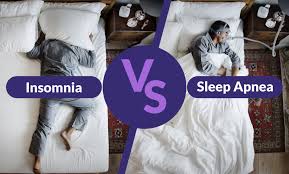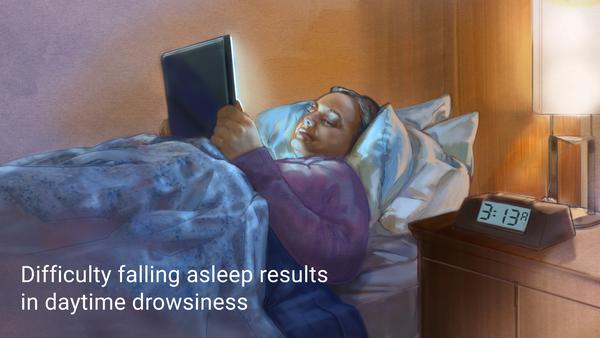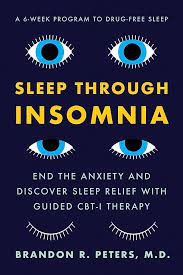The Impact of Insomnia on Sleep Quality and Overall Health
Insomnia is a common sleep disorder that affects millions of people worldwide. It is characterized by difficulty falling asleep, staying asleep, or experiencing non-restorative sleep despite having the opportunity to sleep. Insomnia can have a significant impact on an individual’s overall health and well-being.
Effects of Insomnia on Sleep Quality
Individuals with insomnia often struggle to achieve deep and restful sleep, leading to feelings of fatigue, irritability, and difficulty concentrating during the day. The lack of quality sleep can also affect mood regulation, memory consolidation, and cognitive function.
Impact on Physical Health
Chronic insomnia has been linked to an increased risk of developing various health conditions such as obesity, diabetes, cardiovascular disease, and weakened immune function. The body’s ability to repair and regenerate during sleep is compromised when insomnia disrupts the natural sleep cycle.
Psychological Effects
Insomnia can also have a profound impact on mental health, contributing to symptoms of anxiety and depression. Persistent sleep disturbances can exacerbate existing mental health conditions and make it challenging for individuals to cope with daily stressors.
Treatment Options
Fortunately, there are effective treatment options available for managing insomnia. These may include lifestyle changes such as establishing a consistent sleep routine, creating a relaxing bedtime environment, limiting caffeine intake, and practicing relaxation techniques.
In some cases, healthcare providers may recommend cognitive-behavioral therapy for insomnia (CBT-I) or prescribe medications to help regulate sleep patterns. It is essential for individuals experiencing chronic insomnia to seek professional guidance to address underlying causes and improve their quality of life.
Conclusion
Insomnia is a challenging condition that can significantly impact an individual’s physical health, mental well-being, and overall quality of life. By understanding the effects of insomnia and seeking appropriate treatment strategies, individuals can take proactive steps towards improving their sleep quality and restoring balance to their lives.
Understanding Sleep Insomnia: Causes, Symptoms, and Solutions
- What is insomnia?
- What are the common symptoms of insomnia?
- What causes insomnia?
- How is insomnia diagnosed?
- What are the effects of chronic insomnia on health?
- What are some tips for improving sleep hygiene and managing insomnia?
- When should I seek professional help for my insomnia?
What is insomnia?
Insomnia is a common sleep disorder characterized by persistent difficulty falling asleep, staying asleep, or experiencing restful sleep despite adequate opportunity for rest. Individuals with insomnia often struggle with prolonged periods of wakefulness during the night, leading to feelings of fatigue, irritability, and impaired cognitive function during the day. Insomnia can be caused by various factors such as stress, anxiety, poor sleep habits, medical conditions, or certain medications. Understanding the symptoms and underlying causes of insomnia is crucial in seeking appropriate treatment and improving sleep quality for better overall health and well-being.
What are the common symptoms of insomnia?
Insomnia is characterized by difficulty falling asleep, staying asleep, or experiencing non-restorative sleep despite having the opportunity to rest. Common symptoms of insomnia include difficulty initiating sleep, waking up frequently during the night, waking up too early and being unable to fall back asleep, feeling unrefreshed upon waking, daytime fatigue or sleepiness, irritability, mood disturbances, difficulty concentrating or remembering things, and impaired performance at work or school. It is important to recognize these symptoms and seek appropriate treatment to address underlying causes and improve sleep quality.
What causes insomnia?
Insomnia can be caused by a variety of factors, both physical and psychological. Common causes of insomnia include stress, anxiety, depression, and other mental health disorders that can disrupt sleep patterns. Additionally, certain lifestyle habits such as irregular sleep schedules, excessive caffeine or alcohol consumption, and poor sleep environments can contribute to insomnia. Medical conditions like chronic pain, asthma, acid reflux, and hormonal imbalances may also play a role in the development of insomnia. Understanding the underlying causes of insomnia is crucial in determining the most effective treatment approach to improve sleep quality and overall well-being.
How is insomnia diagnosed?
Insomnia is typically diagnosed through a comprehensive evaluation that involves assessing the individual’s sleep patterns, medical history, and any underlying conditions that may contribute to sleep disturbances. Healthcare providers may use tools such as sleep diaries, questionnaires, and in some cases, overnight sleep studies to gather information about the severity and impact of insomnia on an individual’s daily life. By identifying the specific symptoms and patterns of insomnia, healthcare professionals can make an accurate diagnosis and develop a tailored treatment plan to address the underlying causes of sleep disturbances effectively.
What are the effects of chronic insomnia on health?
Chronic insomnia, characterized by persistent difficulty falling or staying asleep, can have profound effects on an individual’s health. Prolonged sleep deprivation due to chronic insomnia can weaken the immune system, making individuals more susceptible to illnesses and infections. Additionally, chronic insomnia is associated with an increased risk of developing conditions such as obesity, diabetes, cardiovascular disease, and mental health disorders like anxiety and depression. The cumulative impact of disrupted sleep patterns on physical and mental well-being underscores the importance of addressing chronic insomnia through proper diagnosis and treatment to mitigate its adverse effects on overall health.
What are some tips for improving sleep hygiene and managing insomnia?
When it comes to improving sleep hygiene and managing insomnia, there are several tips that can help individuals achieve better quality sleep. Establishing a consistent sleep schedule by going to bed and waking up at the same time each day can regulate the body’s internal clock. Creating a relaxing bedtime routine, such as reading a book or taking a warm bath, can signal to the body that it is time to unwind. It’s important to create a comfortable sleep environment by keeping the bedroom dark, quiet, and at a cool temperature. Limiting caffeine and electronic device use before bedtime can also promote better sleep quality. Additionally, practicing relaxation techniques such as deep breathing or meditation can help calm the mind and prepare it for restful sleep. By incorporating these tips into daily habits, individuals can improve their sleep hygiene and effectively manage insomnia.
When should I seek professional help for my insomnia?
If you find yourself consistently struggling to fall asleep, stay asleep, or experience non-restorative sleep despite trying various self-help strategies, it may be time to seek professional help for your insomnia. Persistent sleep disturbances can have a significant impact on your overall health and well-being, affecting your physical and mental functioning. A healthcare provider can help identify underlying causes of your insomnia and recommend appropriate treatment options tailored to your specific needs. Seeking professional help for insomnia is crucial in managing the condition effectively and improving your quality of life.



